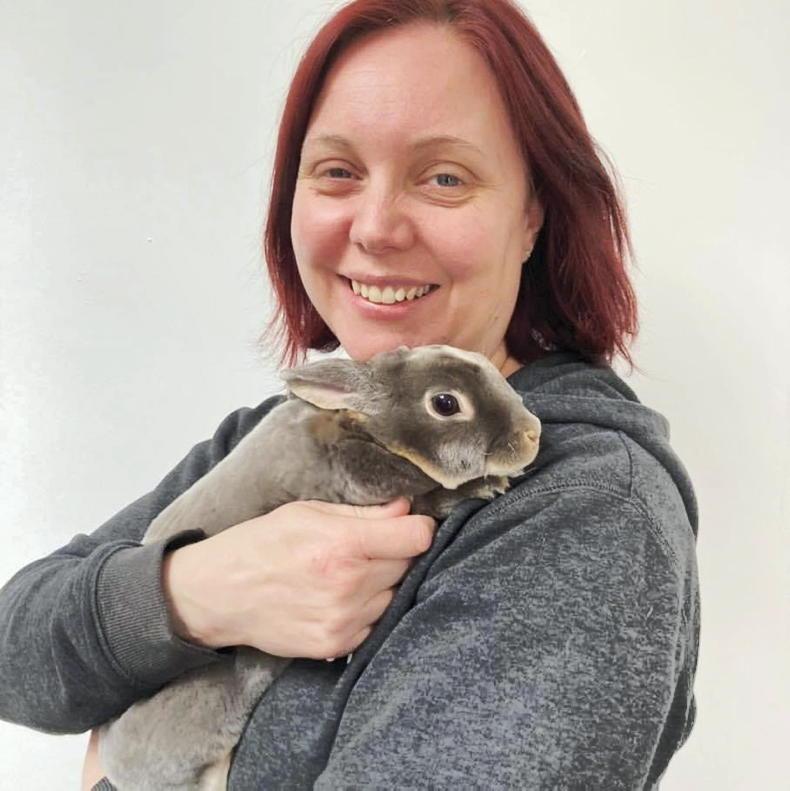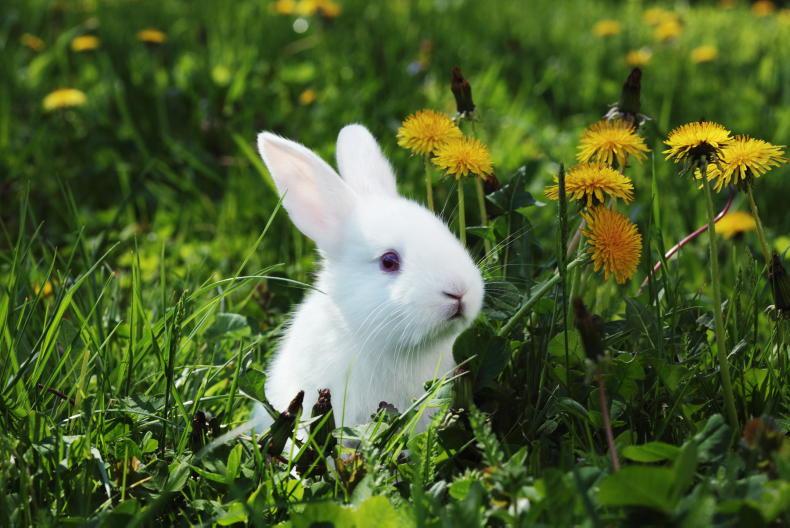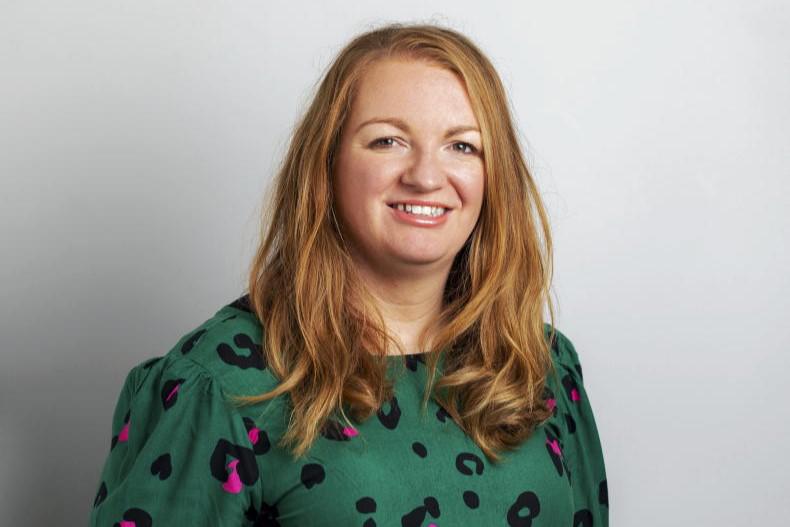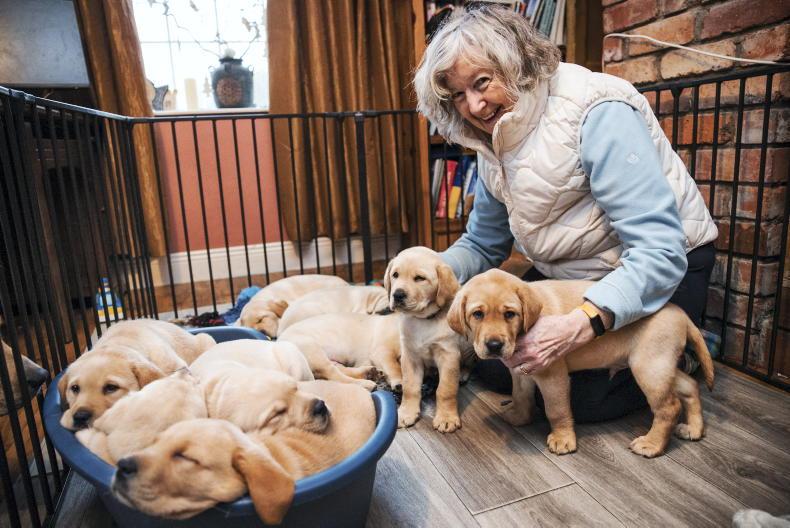With shop floors flooded with Easter eggs, chocolates and toy bunnies, have you ever been tempted to buy one of your own? With their soft fur, floppy ears and playful nature, they may seem irresistible as their big eyes look up at you from a cage. However, rabbits are one of Ireland’s most abandoned pets and there is a lot to consider before bringing them home.
According to Tara Croke, small animal manager in the Galway SPCA, one of the biggest problems with rabbits is that people completely underestimate them. “People see these cuddly balls of fluff and think they are an easy pet, however, this couldn’t be further from reality,” says Tara. “Rabbits are very social animals and are actually quite strong. There’s no forgetting a kick from a rabbit that doesn’t want to be picked up.”
Tara says that a well looked after healthy rabbit, in a proper enclosure, can live up to 12 years and is as much of a commitment as a cat or dog.
“They need company and are social creatures, however, they are also incredibly territorial,” she says. “Often owners don’t neuter bunnies before they go into their mating years and as their hormones kick in they can become aggressive and start fighting. People then have to surrender one of the rabbits as they simply didn’t put the research in first.”

Tara Croke, small animal manager at the Galway SPCA.
A vicious cycle
Regardless of people making ill-informed decisions before purchasing rabbits, Tara says the way in which they are sold contributes heavily to their widespread abandonment.
“There are puppy farms, cat farms and there are rabbit farms too but in rabbit farms, all you need to feed them is hay so they can keep reproducing,” she says.“Rabbits are sold in car boot sales, at farmer’s markets, poultry fairs and even on Facebook Marketplace for as little as €10. If you buy two rabbits at a car boot sale and don’t know their gender, you could end up with 12 rabbits within a few months.”
Tara says that 2023 was the worst year she saw for dumped rabbits. “At one stage, 80% of the rabbits we had in were dumped in forests, bogs and on the side of the road in plastic bags.
“They come in frightened and malnourished, with injuries and open wounds, a harsh contradiction from what you see in pet shops over Easter.” Tara also adds that rabbits usually aren’t dumped at Easter, but in summer when the novelty has worn off. “I don’t even advertise our bunnies due to the vicious cycle we see every year. “Thankfully there is a network for rabbits looking for homes such as The Rabbit Rooms and Rabbit Rehoming Ireland.”

Fiona Murphy, owner of the Rabbit Rooms, Dublin.
Adequate care
Fiona Murphy, owner of The Rabbit Rooms, has built her business around offering a range of services for small animals including bunny boarding (lodging for rabbits while owners are away), grooming services, coaching lessons and online webinars.
Working closely with Palmerstown Veterinary Hospital and vets in Raheny Vet Hospital, Fiona takes pride in providing her wide knowledge base of small animal care.
One of Fiona’s master classes, ‘Is a rabbit right for me?’, deals with key issues to consider before taking a bunny home. “Rabbits need a lot more space than you would think,” says Fiona.
“Having an area measuring 4ft x 6ft would be an absolute minimum. The general rule is they would do three hops uninterrupted without hitting a wall.
“If you have an outdoor rabbit, they need an enclosed area to keep them protected from the weather and it must be predator proof with a run (where they can do uninterrupted hops) attached.”
Most of the work Fiona does is her bunny boarding service, however she often gets contacted by vets or gardaí who have found neglected rabbits in the hope of re-homing them.
Finding fur-ever homes
“One of the absolute worst cases I saw was last year. A beautiful white lop-eared rabbit was dumped at the side of the road.
“When she was found, she wasn’t white anymore and was near starvation, the condition she was in was absolutely heartbreaking.”
Fiona then fostered this rabbit for a few weeks before finding her a forever home with one of her bunny boarding customers. Sadly, this is just one case of many as Fiona says recently there has been a surge in rabbits dumped that have overgrown teeth or matted hair.
“There is a misconception where people think if they leave a domestic rabbit in the wild, it will fend for itself but their fur isn’t adapted to blend in with wildlife so they end up starving to death or as prey for other animals.”
However, Fiona wants people to know that a rabbit can make a great companion and addition to your family.
“Go into it with your eyes open, know what you are getting into and ensure your floppy-eared friend will suit your lifestyle.”
Read more
Sheamie Garrihy opens Lidl Farm 2024
Meet the Maker: Janni Sjostrand
With shop floors flooded with Easter eggs, chocolates and toy bunnies, have you ever been tempted to buy one of your own? With their soft fur, floppy ears and playful nature, they may seem irresistible as their big eyes look up at you from a cage. However, rabbits are one of Ireland’s most abandoned pets and there is a lot to consider before bringing them home.
According to Tara Croke, small animal manager in the Galway SPCA, one of the biggest problems with rabbits is that people completely underestimate them. “People see these cuddly balls of fluff and think they are an easy pet, however, this couldn’t be further from reality,” says Tara. “Rabbits are very social animals and are actually quite strong. There’s no forgetting a kick from a rabbit that doesn’t want to be picked up.”
Tara says that a well looked after healthy rabbit, in a proper enclosure, can live up to 12 years and is as much of a commitment as a cat or dog.
“They need company and are social creatures, however, they are also incredibly territorial,” she says. “Often owners don’t neuter bunnies before they go into their mating years and as their hormones kick in they can become aggressive and start fighting. People then have to surrender one of the rabbits as they simply didn’t put the research in first.”

Tara Croke, small animal manager at the Galway SPCA.
A vicious cycle
Regardless of people making ill-informed decisions before purchasing rabbits, Tara says the way in which they are sold contributes heavily to their widespread abandonment.
“There are puppy farms, cat farms and there are rabbit farms too but in rabbit farms, all you need to feed them is hay so they can keep reproducing,” she says.“Rabbits are sold in car boot sales, at farmer’s markets, poultry fairs and even on Facebook Marketplace for as little as €10. If you buy two rabbits at a car boot sale and don’t know their gender, you could end up with 12 rabbits within a few months.”
Tara says that 2023 was the worst year she saw for dumped rabbits. “At one stage, 80% of the rabbits we had in were dumped in forests, bogs and on the side of the road in plastic bags.
“They come in frightened and malnourished, with injuries and open wounds, a harsh contradiction from what you see in pet shops over Easter.” Tara also adds that rabbits usually aren’t dumped at Easter, but in summer when the novelty has worn off. “I don’t even advertise our bunnies due to the vicious cycle we see every year. “Thankfully there is a network for rabbits looking for homes such as The Rabbit Rooms and Rabbit Rehoming Ireland.”

Fiona Murphy, owner of the Rabbit Rooms, Dublin.
Adequate care
Fiona Murphy, owner of The Rabbit Rooms, has built her business around offering a range of services for small animals including bunny boarding (lodging for rabbits while owners are away), grooming services, coaching lessons and online webinars.
Working closely with Palmerstown Veterinary Hospital and vets in Raheny Vet Hospital, Fiona takes pride in providing her wide knowledge base of small animal care.
One of Fiona’s master classes, ‘Is a rabbit right for me?’, deals with key issues to consider before taking a bunny home. “Rabbits need a lot more space than you would think,” says Fiona.
“Having an area measuring 4ft x 6ft would be an absolute minimum. The general rule is they would do three hops uninterrupted without hitting a wall.
“If you have an outdoor rabbit, they need an enclosed area to keep them protected from the weather and it must be predator proof with a run (where they can do uninterrupted hops) attached.”
Most of the work Fiona does is her bunny boarding service, however she often gets contacted by vets or gardaí who have found neglected rabbits in the hope of re-homing them.
Finding fur-ever homes
“One of the absolute worst cases I saw was last year. A beautiful white lop-eared rabbit was dumped at the side of the road.
“When she was found, she wasn’t white anymore and was near starvation, the condition she was in was absolutely heartbreaking.”
Fiona then fostered this rabbit for a few weeks before finding her a forever home with one of her bunny boarding customers. Sadly, this is just one case of many as Fiona says recently there has been a surge in rabbits dumped that have overgrown teeth or matted hair.
“There is a misconception where people think if they leave a domestic rabbit in the wild, it will fend for itself but their fur isn’t adapted to blend in with wildlife so they end up starving to death or as prey for other animals.”
However, Fiona wants people to know that a rabbit can make a great companion and addition to your family.
“Go into it with your eyes open, know what you are getting into and ensure your floppy-eared friend will suit your lifestyle.”
Read more
Sheamie Garrihy opens Lidl Farm 2024
Meet the Maker: Janni Sjostrand












SHARING OPTIONS